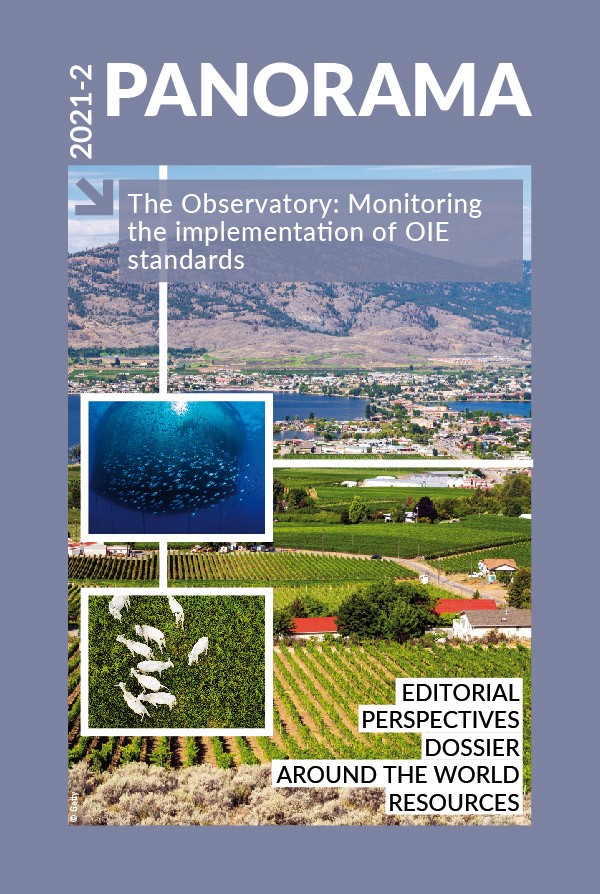Around the world Posted on 2021-12-20 15:14:42
Network initiatives
The WTO SPS Agreement and its role in monitoring the process of harmonisation and the use of international standards
Keywords
Authors
Christiane Wolff(1) & Arti Gobind Daswani(1)*
(1) SPS Section, Agriculture and Commodities Division, World Trade Organization (WTO).
* Corresponding author: Arti.daswani@wto.org; spscommittee@wto.org.
The designations and denominations employed and the presentation of the material in this article do not imply the expression of any opinion whatsoever on the part of the OIE concerning the legal status of any country, territory, city or area or of its authorities, or concerning the delimitation of its frontiers and boundaries.
The views expressed in this article are solely the responsibility of the author(s). The mention of specific companies or products of manufacturers, whether or not these have been patented, does not imply that these have been endorsed or recommended by the OIE in preference to others of a similar nature that are not mentioned.
The SPS Agreement encourages WTO Members to base their SPS measures on international standards, guidelines or recommendations, developed by the three international standard-setting bodies recognised by the WTO for this purpose: the Codex Alimentarius Commission (Codex) for food safety, the Secretariat of the International Plant Protection Convention (IPPC) for plant health, and the World Organisation for Animal Health (OIE) for animal health and zoonoses [3].
The SPS Committee is tasked with monitoring the process of harmonisation and the use of international standards [4]. It has established a monitoring process which allows WTO Members to identify the non-use of an existing international standard, the need to update a standard, or situations where an international standard may be missing [5, 6]. The SPS Committee considers annual monitoring reports which are brought to the attention of the international standard-setting bodies, and cooperates closely with them in their respective areas.
The Fifth Review of the operation and implementation of the SPS Agreement highlighted the role of the international standard-setting bodies in sharing guidance on scientific uncertainty and the insufficiency of scientific evidence in the risk analysis process, and encouraged Members to periodically review their SPS measures in light of developments and updates in relevant areas [7, 8].
https://doi.org/10.20506/bull.2021.2.3287
References
- World Trade Organization (WTO) (1994). – Agreement on the Application of Sanitary and Phytosanitary Measures. 15 pp.
- World Trade Organization (WTO) (1998). – Understanding the WTO Agreement on Sanitary and Phytosanitary Measures.
- World Organisation for Animal Health (OIE) (2020). – Ensuring safe trade in animals and animal products. Rev. Sci. Tech. Off. Int. Epiz., 39 (1). https://doi.org/10.20506/rst.issue.39.1.3056.
- World Trade Organization (WTO) & Organisation for Economic Co-operation and Development (OECD) (2019). – Facilitating trade through regulatory cooperation. The case of the WTO’s TBT/SPS Agreements and Committees.
- World Trade Organization (WTO) (2004). – Revision of the procedure to monitor the process of international harmonization. Document G/SPS/11/Rev.1.
- World Trade Organization (WTO) (2021). – Sanitary and Phytosanitary Information Management System.
- World Trade Organization (WTO) (2020). – Review of the operation and implementation of the SPS Agreement. Documents G/SPS/64 and G/SPS/64/Add.1.
- World Trade Organization (WTO) (2020). – WTO members adopt report on food safety, animal and plant health, paving way for new work.












